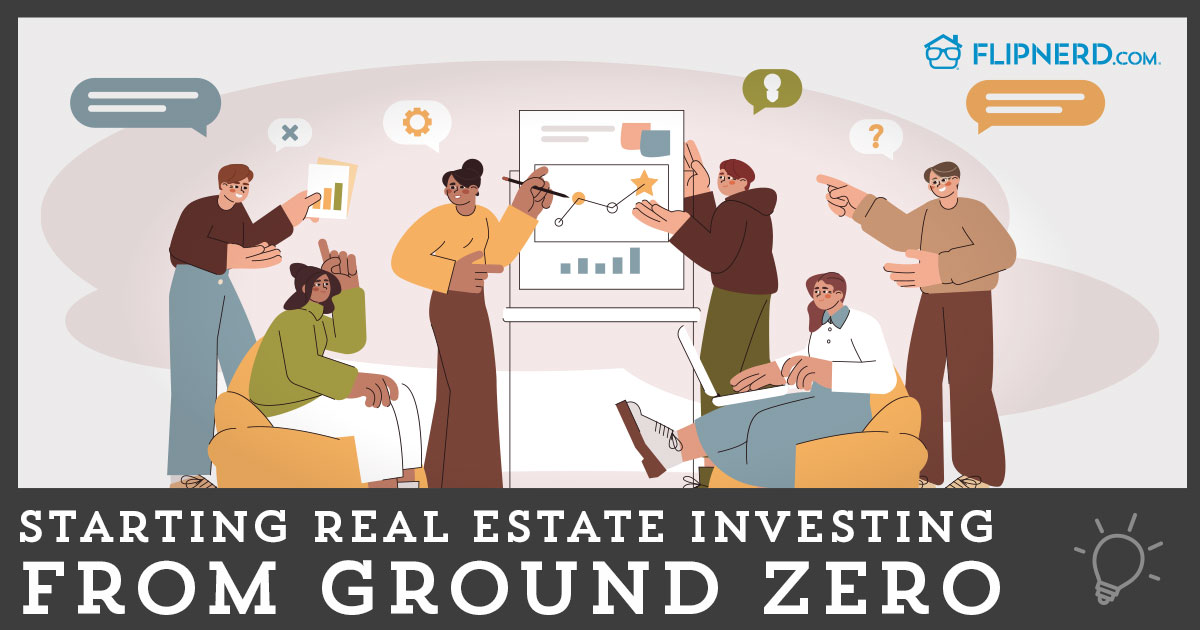Sometimes, you make more money by saying no to the deal.
When there are red flags going up everywhere, and your instincts are screaming at you to back away, it’s quite likely you should listen.
Every home is different.
Does it sound too good to be true? There might be a reason for that. Until you
walk through a home and see the condition it’s in, it’s hard to know if it will be a good deal or not.
Sure, some are in pristine neighborhoods with excellent schools, but every investor should do their homework and if possible, have someone do a drive-by of the home.
Seeing the property is when red flags can pop up.
The hidden dangers come from not educating yourself about the home and surrounding area that you’re considering.
It’s not terribly uncommon to hear investors purchasing site unseen.
Even so, sometimes, it’s worth the risk if the price is right.
After that, it’s instincts and due diligence that will guide you
and prevent you from making a poor decision.
We asked a couple of real estate investors what made them choose not to invest in a home.
Jim Ingersoll-
“Red flags for me have become houses with tons of mold, houses that back up to a cemetery, houses on horribly sloped lots, terrible obsolete layouts, septic issues that cannot be resolved, and houses that back up to the projects. All of these can be wholesaled, but they do not meet my investment criteria for buying and holding properties. I have learned some deals are better to trade away than to keep. Normally, I would suggest a red flag comes from a recently dead body, but I did get a great deal following a really bad scenario that involved a bloody bed still in the bedroom when I met this motivated seller. Houses priced too high can sometimes work…so always look at the whole deal when evaluating your numbers.”
Brian Meara-
“One of the most common reasons for a short sale is a divorce. Many times, as you can imagine, the “parties” are not always civil with each other, and sometimes not speaking at all.
A few years ago I was presented with an amazing deal—on paper anyway! The comps looked great, the house only needed some minor cosmetic work, and it was in a neighborhood where the sales were very quick. Everything was shaping up great…until we spoke with the homeowner. It turns out, the wife ran away with the contractor…all the way to California (the house was in NJ). Not only that, she refused to take her husband’s calls most times and when they did talk it wasn’t very pretty. He did manage to explain that there was an investor buyer that would buy their home and keep it out of foreclosure. I should mention that since she split four months prior, the mortgage went unpaid, and the house was now in default. Anyway, she refused to cooperate and in fact said, “I don’t care if you burn it down.” We could have kept on him, to keep trying to get her to realize what an opportunity we were presenting them, but decided it just wouldn’t be worth inserting ourselves in that messy situation. We decided to walk away from that deal. We later found out that the house eventually did foreclose, unfortunately. If there are two people on the deed and mortgage they both need to be willing to cooperate, or there’s simply no deal—no matter how good it looks on paper.”
For Older Homes
A few major points to keep in mind:
- Spend the money and get an inspector out to the home to check for major repairs before selling.
- Most investors purchase a home for well under ARV (after repair value) and after doing necessary repairs, you’re able to sell the home at ARV and make a decent profit.
- This becomes a problem when repairs are extensive and the money you spend on getting the home ready to sell eats up all of your potential profit. Foundation, electrical, plumbing, and roofing, for example, can add up in repair costs.
- Careful calculations and wiggle room in your budget for unexpected challenges need to be examined to ensure the project is worth your time and money.
- Trust your gut.
- If a home looks too good to be true, it probably is. Dig deeper to find out how much money you’re going to have to invest in the home to turn around and sell it.
- Take a look at the neighborhood and see how long houses are on the market for and the prices they’re selling at.
- Be mindful when purchasing a home in an area with homes that have been sitting on the market for a long period of time. As we all know, time is money, and a home sitting empty is not going to bring you any cash flow.
Be smart. Don’t rush into a deal without due diligence. Look for red flags. Don’t rush into a deal and avoid being pressured because of a timeline. Know when it’s smarter and more cost effective to not invest in a home. Concentrate your time, money, and energy on a few “home runs” in lieu of a handful of possible “no-hitters.”









